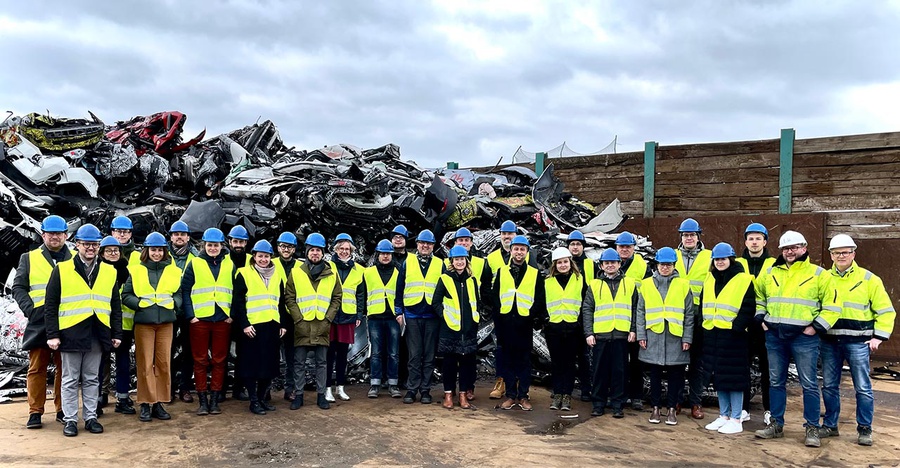The BMW Group is partnering with representatives from the recycling industry, commodity processors, and scientific community to explore a so-called circular economy in automotive manufacturing. The Car2Car project – supported by a 6.4-million euro grant from the German Federal Ministry for Economic Affairs and Climate Action – aims to investigate the materials aluminum, steel, glass, copper, and plastic.
The BMW Group has set itself the target of increasing the proportion of secondary materials in its brands’ new models from around 30 per cent at present to 50 per cent. To help achieve this, the recyclability of the materials used is already taken into account during the design process for new models. Rethinking how materials are recovered from vehicles at the end of their product life cycle is also of key importance. The raw materials obtained from recycling can only be used as part of a circular economy if they also satisfy the high standards of quality the BMW Group expects of materials for premium cars.
The BMW Group is supplying 500 end-of-life vehicles for the purposes of the project. A variety of models from its own portfolio – ranging from MINI to Rolls-Royce cars with combustion engines, plug-in hybrid systems and all-electric drive units – are undergoing recycling to produce a representative spectrum. Here, the consortium partners will be looking into potential ways of improving closed vehicle material flows. They are setting out to evaluate how limiting the flow of materials to vehicles affects the quality and purity of secondary raw materials.
The Car2Car consortium aims to recommend an innovative framework to enable an efficient circular economy to deliver greater added value in the future than possible through conventional, linear process chains. Digital technology and artificial intelligence (AI) can automate and speed up the recycling process, which has been performed manually so far. The dismantling process can be partly or highly automated using robotics technology.
Integration of systems for optical and AI-assisted detection and sorting of reusable materials can significantly improve the quality and purity of materials. The project will develop sensor technology using AI-based materials detection and other spectroscopic methods to identify different steel and aluminum alloys to obtain raw materials with a higher degree of purity.
The BMW Group is leading another consortium project, Future Sustainable Car Materials, working on innovative process routes and material concepts for the sustainable use of secondary materials and for reducing the carbon footprint of raw materials such as steel and aluminum.
Source: BMW


